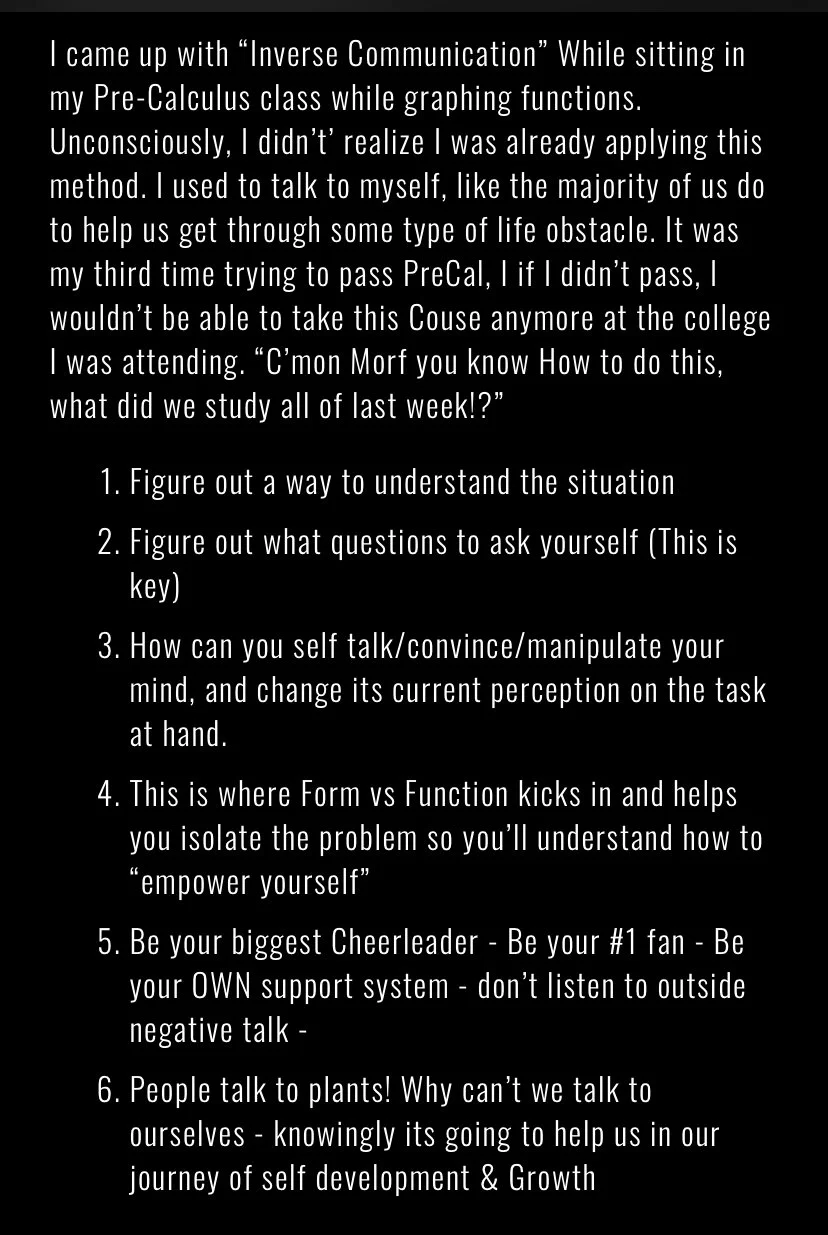
Inverse Communication | Self Talk Empowerment
Why is self talk important in communication?
You communicate more effectively with other people when you're feeling better about yourself. Plus you're thinking clearly when the inner voice isn't shouting abuse at you. You may actually be a nicer person.
What is self talk or Inverse Communication
Self-talk is your internal dialogue. It's influenced by your subconscious mind, and it reveals your thoughts, beliefs, questions, and ideas. Self-talk can be both negative and positive. It can be encouraging, and it can be distressing.
How does self-talk affect performance?
In the research literature, both instructional and motivational self-talk have been shown to enhance performance. Negative self-talk increases motivation and performance in some circumstances but is generally detrimental to sport performance.
Defining Positive Self-Talk
Positive self-talk is an inner monologue that makes you feel good about yourself and everything going on in your life. It's an optimistic voice in your head that encourages you to look at the bright side, pick yourself up when you fall and recognize when you fail.
Positive Self-Talk: Benefits And Techniques
If you're an optimist, your self-talk may be more hopeful and positive.
Having a more positive outlook on life can provide you with some health benefits.
If you believe your self-talk is too negative, or if you want to emphasize positive self-talk, you can learn to shift that inner dialogue.
It's not clear why optimists and individuals with more positive self-talk experience these benefits.
Research suggests people with positive self-talk may have mental skills that allow them to solve problems, think differently, and be more efficient at coping with hardships or challenges.
These scenarios are examples of when and how you can turn negative self-talk into positive self-talk.
Positive self-talk can help you improve your outlook on life.


